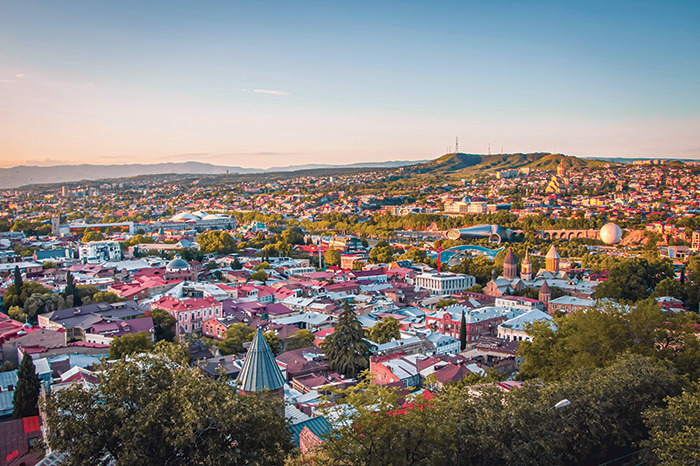Georgia’s residential real estate market – trends, challenges, and prospects
The latest analysis from TBC Capital shows that Tbilisi’s residential real estate market is cooling – posting a 5% YoY decrease in transactions in February and modest 1% YoY growth in asking price.
Tbilisi’s residential real estate market also exhibited modest growth in 2024 compared to recent years, posting a 1% annual increase in transactions and 7.1% growth in total market value, says Galt & Taggart’s latest annual review. But recent developments show a cooling market and demand that is predicted to soften amid concerns of a slowdown in economic growth, GEL depreciation, and lower rental yields.
According to Galt & Taggart’s report, multiple factors may have contributed to this moderation in sales. In addition to domestic political instability that began in the spring of 2024, which has created uncertainty in the market, weakening demand from migrant buyers, who previously played a notable role in driving rental and sale prices, is also making an impact.
Rising property prices across the country, particularly in major cities, has also made homeownership less accessible for some buyers. Furthermore, notes Galt & Taggart, the overall increase in global interest rates has strained affordability, discouraging some potential buyers and impacting the real estate market as a whole.
The residential real estate markets of Tbilisi and Batumi – the two largest markets in the country – are notably distinctive in their characteristics. Whilst Tbilisi remains primarily a need-based market, with purchases driven by local buyers seeking primary residences, Batumi, by contrast, is highly investment-driven, with 60-70% of sales attributed to investors. As such, Batumi’s market is experiencing more of a cooling period, with some developers struggling to maintain sales levels.
Despite these challenges, foreign buyers remain a significant force in the market, particularly in Batumi, where international investors account for a substantial share of transactions. Russian buyers have led foreign acquisitions in recent years, although the composition of foreign investment is gradually diversifying, with increased interest from the Middle East, Israel, and European buyers.
Tbilisi’s residential real estate market also exhibited modest growth in 2024 compared to recent years, posting a 1% annual increase in transactions and 7.1% growth in total market value, says Galt & Taggart’s latest annual review. But recent developments show a cooling market and demand that is predicted to soften amid concerns of a slowdown in economic growth, GEL depreciation, and lower rental yields.
According to Galt & Taggart’s report, multiple factors may have contributed to this moderation in sales. In addition to domestic political instability that began in the spring of 2024, which has created uncertainty in the market, weakening demand from migrant buyers, who previously played a notable role in driving rental and sale prices, is also making an impact.
Rising property prices across the country, particularly in major cities, has also made homeownership less accessible for some buyers. Furthermore, notes Galt & Taggart, the overall increase in global interest rates has strained affordability, discouraging some potential buyers and impacting the real estate market as a whole.
The residential real estate markets of Tbilisi and Batumi – the two largest markets in the country – are notably distinctive in their characteristics. Whilst Tbilisi remains primarily a need-based market, with purchases driven by local buyers seeking primary residences, Batumi, by contrast, is highly investment-driven, with 60-70% of sales attributed to investors. As such, Batumi’s market is experiencing more of a cooling period, with some developers struggling to maintain sales levels.
Despite these challenges, foreign buyers remain a significant force in the market, particularly in Batumi, where international investors account for a substantial share of transactions. Russian buyers have led foreign acquisitions in recent years, although the composition of foreign investment is gradually diversifying, with increased interest from the Middle East, Israel, and European buyers.
“Foreign investors, particularly from Russia, the Middle East, and Israel, have traditionally played a key role in the market. However, due to political uncertainty and rising property prices, many are now showing a greater preference for short-term rental investments rather than long-term property ownership.”
Published by IARE.ORG.GE
Source Investor.ge
Photo Investor.ge
Source Investor.ge
Photo Investor.ge
